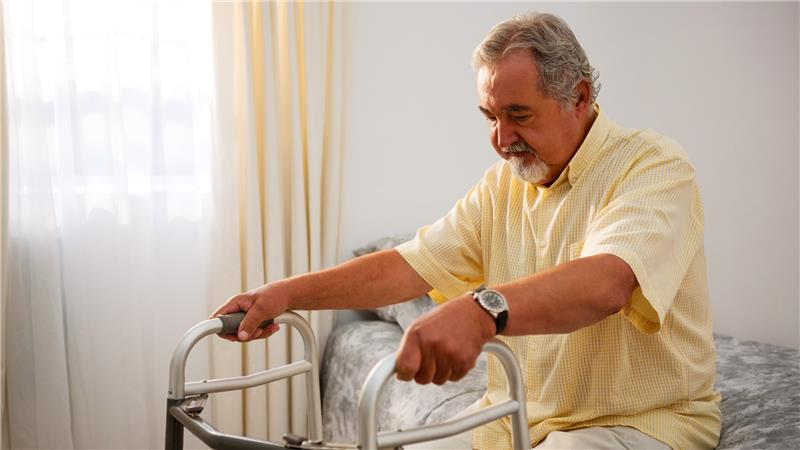Not just a diagnosis: support for people with mental health conditions to get disability benefits

Around one in three people will experience a mental health condition during their lifetime. For many, their illness will have a significant impact on their day-to-day life.
Child Disability Payment and Adult Disability Payment are designed to help with the extra costs that can come with disabilities, including those that result from mental illness. The money can be used in a variety of ways, from paying for therapy to travelling to and from support groups.
As part of our person-centred approach, we see people as individuals and not just a diagnosis. We always strive to fully understand the impact of our clients’ mental health conditions, so we can make sure they get the financial support they’re entitled to.
In recognition of Mental Health Awareness Month, we spoke to Maureen Brown, Senior Practitioner at Social Security Scotland. She is part of a team of specialist, health and social care staff. Her role is to support the team who process and make decisions about applications for disability benefits from people with mental health conditions.
Maureen spent 25 years in the NHS, including 14 years working as a Matron in inpatient forensic mental health.
Maureen said:
“We receive applications from people with all kinds of mental health conditions. We get a lot of applications with depression and anxiety. What we look at is how the condition impacts on the person’s ability to manage their life rather than just their condition.
“At Social Security Scotland we always assure clients that the person they're talking to has a background in mental health care. When we have consultations with people with a mental health condition, we try to do it in a way that they feel comfortable with.
“There are two particular activities some people with mental health conditions may find difficult; engaging with others and planning and following journeys, for both there is a spectrum.”
“These issues can be really difficult for someone to unpick if they don’t have a professional background in mental health.”
As with all applications for Child Disability Payment and Adult Disability Payment, people with mental health conditions are asked to provide supporting information with their application form to help us understand their conditions and their needs. Supporting information can be anything from prescription lists to social and/or health care plans.
Maureen said:
“Sometimes people under-report the impact of their condition in applications. But we may have a letter from their Community Psychiatric Nurse that says they’re not motivated to care for their own welfare, so this can be used as supporting information which adds weight to their application.
“People sometimes submit information like a generic leaflet about counselling but that doesn't tell us about how often they're having counselling or why they're having it or what the counselling does for them. This is the kind of information that helps us to make a person-centred decision.
“One of the other things that we pick up in applications is that people tell us they have an issue, for example panic attacks, but do not describe what happens to them when they experience one. There’s such a wide spectrum that we need as much detail as possible to make sure we really understand their experiences.”
When creating our disability benefits, we listened to disabled people, including people with mental health conditions. They told us how difficult it can be for some people to apply for the help they’re entitled to. In response a range of support was put in place to help people access benefits.
Maureen said:
“When people apply, they can get support with their application from our team of specialist client advisers, who are based in communities across Scotland. That support can be provided in their home, in an office, at a partnership location or over the phone.
“There are lots of options depending on what they feel most comfortable with. They can also say if they’d prefer to speak to someone of a particular gender.
“The Scottish Government also funds Voiceability, an independent advocacy service while some people get support from local welfare rights organisations or charities.”
To find out more about disability benefits and apply online, over the phone or book an appointment to apply in-person, people can visit mygov.scot/benefits or call us free on 0800 182 2222.
Information on how to find support for mental health issues is available on mygov.scot.

